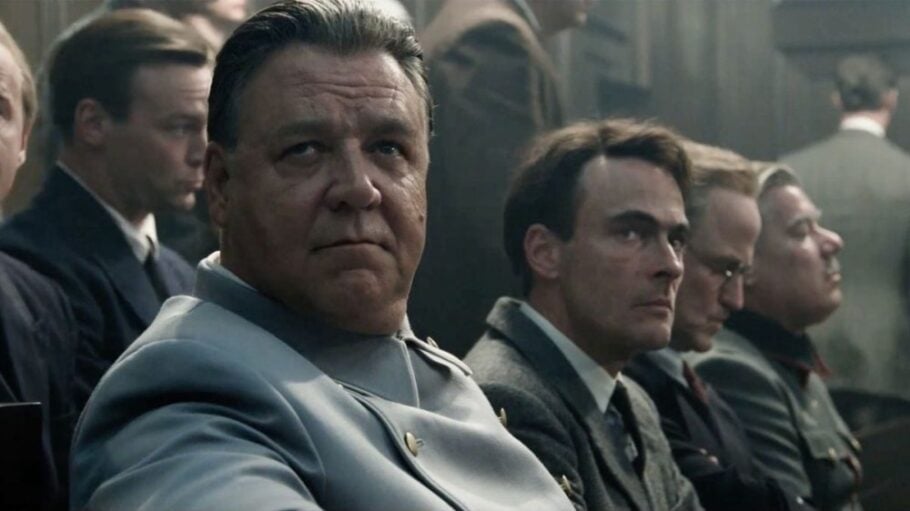James Vanderbilt’s courtroom drama “Nuremberg” may be rooted in history, but it’s also quite possibly one of the season’s most timely and awards-worthy films. Centered on the first international tribunal that put Nazi leaders on trial, the film is a riveting psychological thriller that could be a formidable player across multiple Oscar categories.
What makes “Nuremberg” particularly compelling in today’s political landscape is how it interrogates the very foundations of justice itself. At a time when democratic institutions face unprecedented challenges globally, Vanderbilt’s film recounts historical events and forces audiences to confront uncomfortable questions about how societies reckon with evil and whether justice can truly be impartial when confronting the unthinkable.
At the heart of “Nuremberg” is Russell Crowe‘s towering turn as Hermann Göring, Hitler’s second-in-command. The Oscar winner hasn’t delivered work this commanding since Ron Howard’s “Cinderella Man” (2005). Here, Crowe captures the paradox of Göring’s charisma and monstrosity, portraying a man capable of seducing the room even as his crimes repulse the world. Crowe’s German dialogue, which he learned specifically for the role, adds a layer of authenticity, with his cat-and-mouse exchanges with Rami Malek’s Army psychiatrist Douglas Kelley crackling with intensity. It’s the kind of transformative, fully inhabited performance that could catapult him back into the thick of a very competitive best actor race.
The genius of Crowe’s portrayal lies in how he doesn’t take any shortcuts in portraying Göring entirely. A risky and morally complex character like this serves a crucial purpose: it reminds us that evil often wears a human face, speaks eloquently, and can even be charming. That’s also a credit to Vanderbilt’s complex script, which is based on “The Nazi and the Psychiatrist” by Jack El-Hai.
But Crowe isn’t the only standout. Rising star Leo Woodall, best known for “The White Lotus,” and who is currently starring in another TIFF film “Tuner,” cements himself as a force with his emotional turn as a translator caught in the tribunal’s web. Though he entered the project without speaking German, Woodall committed himself to mastering the language for the role, delivering a performance brimming with resonance and restraint. One scene he has late in the film reduces the audiences to tears, marking him as a dark horse worthy of serious supporting actor attention.
Beyond the acting showcases, “Nuremberg” has the goods to compete in several craft categories. Crisp production design meticulously recreates the claustrophobic cells and tribunal courtroom, while Dariusz Wolski’s camera work transports audiences back in time.
Adapted screenplay is another opportunity with Vanderbilt, best known for scripting “Zodiac” and “Truth,” finding a unique entry point into a well-documented chapter of history by focusing on the psychological duels between Kelley and Göring.
Love Film & TV?
Get your daily dose of everything happening in music, film and TV in Australia and abroad.
With Academy voters traditionally having shown an appetite in recent years for historical works that double as cautionary tales — such as “Oppenheimer” and “The Trial of the Chicago 7” — “Nuremberg” could also emerge as a sleeper candidate for best picture. But that will require a strong push from Sony Pictures Classics, no stranger to awards races.
The film’s timing is particularly prescient. As democracies face internal threats and international law struggles to contend with new forms of warfare and authoritarian manipulation, “Nuremberg” could be what the Oscars need at this moment.
It’s a film about the past that also has the fierce urgency of now.
From Variety US































